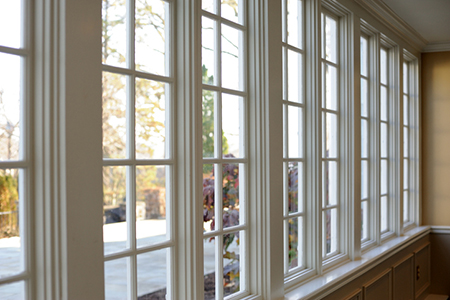Energy loss attributed to windows accounts for nearly 25 percent of the annual heating and cooling costs for the average American home, according to the Department of Energy. Do double-paned windows provide enough savings to justify their cost?
Experts say that even a clear glass, double-paned vinyl or wood-framed window can reduce energy usage by up to 24 percent in cold climates during the winter, and by up to 18 percent in hot climates during the summer, when compared to older, single-pane models. The savings may be even greater if you choose top-of-the-line models and/or triple-paned windows.
Double-paned windows are a boon to the environment as well, because when you burn less fossil fuel, you create fewer greenhouse gas emissions.
As an added bonus, double-paned windows significantly reduce traffic sounds and other outdoor noise, making them a smart buy in busy urban areas.
Apart from the cost, there’s no downside to installing double-paned windows, although experts say that quality matters. From failed seals to improperly spaced glass, poorly manufactured windows can negate energy savings and lead to other problems, such as condensation developing between the panes—so it’s wise to buy from a reputable dealer.
Also, replacing individual windows rather than upgrading entire homes or floors will not likely yield your intended energy savings. Old windows will still leak air even if you install one double-paned one, making it imperative to replace all the windows in your home at the same time.
Costs can vary considerably depending upon the number of windows to be replaced and the overall quality of materials used. On average, you may expect to pay between $300 and $500 per window, plus an installment fee. But competition is keen and sales do occur, so a thrifty homeowner should get several estimates before choosing a contractor.
Interested in more real estate information? Feel free to contact me directly.











